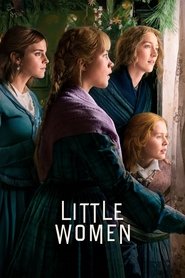Gerwig has repackaged 19th century proto-feminism for the knowing 21st century viewer, but is energy and a critical eye enough to say something radically different?[…]
Lauded for taking the original “to new feminist heights”, Gerwig’s Little Women in fact fails to engage with the proto-feminist spirit of the original, let alone the radical potential for which a modern adaptation might allow. Instead, the film imbricates a knowing irony, a self-aware stylisation, into the fabric of the original text, but leaves the central tropes of the novel intact. […] These contradictions are frustrating. In the scenes on Christmas morning where the Marches, aglow with goodness, take their breakfast to their poorer neighbours, only to be rewarded with an even better breakfast by the similarly beneficent Laurence household, we are presented with an uncritical spectacle of Victorian dependency, grimly recycling the contemporary moral discourse where such charity represents a viable moral and political economy. […] Gerwig’s refusal to engage with feminist ideas beyond those that pertain to Alcott’s time risks celebrating a socially conservative present.
[…]
With an ironising retrospective gaze, Little Women […] simplifies, limits and depoliticises the past for easy consumption in the modern marketplace. […] This is a version without real consistent anger, that gives occasional voice to the rage of Jo and Marmee but which wraps up their fury in a linen shawl. […] With the cinematic perspective of looking backwards and smiling at History – however knowingly – comes bourgeois inevitability and unnecessary pessimism. Gerwig’s Little Women is afflicted by a kind of a teleological smugness. We can smile and say, yes, that was how they did it then, but we wouldn’t do it that way now, would we? But then again, we might.
— Georgie Carr (Another Gaze)
Cambridge Film Festival 2023: Film #14
I appreciated this adaptation's nonlinearity a lot better on this rewatch and also took more pleasure from the film's metatextual jibes on critics (and women author-directors). Yet the film's general smugness and obvious reverence for wealth and Victorian-era charity grated a lot more this time. The dance-outside-the-dance (with the anachronistic Dvořák string quartet) is a good example of the film trying to have it multiple ways, additionally coming booby-trapped with a tedious "oh, it's just a bit of feelgood fun!" defence. Lastly, a few remembered scenes I had grown beyond their worth in my mind in the preceding years, particularly Jo's interactions with publisher Dashwood; a pale imitation of Mattie Ross (literally) horse-trading with Col. Stonehilll. Still, this Little Women is a success, even if it's a qualified one.

